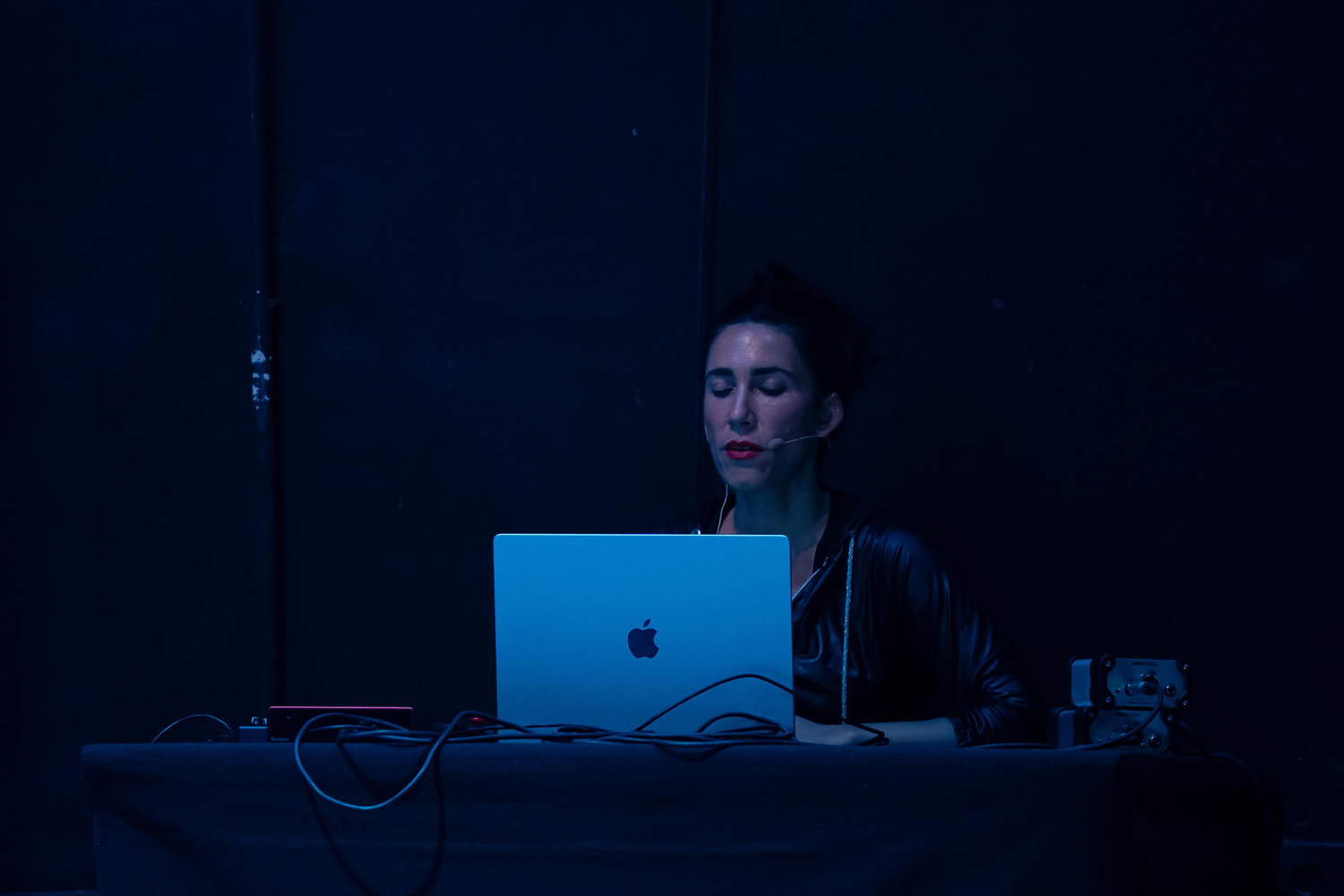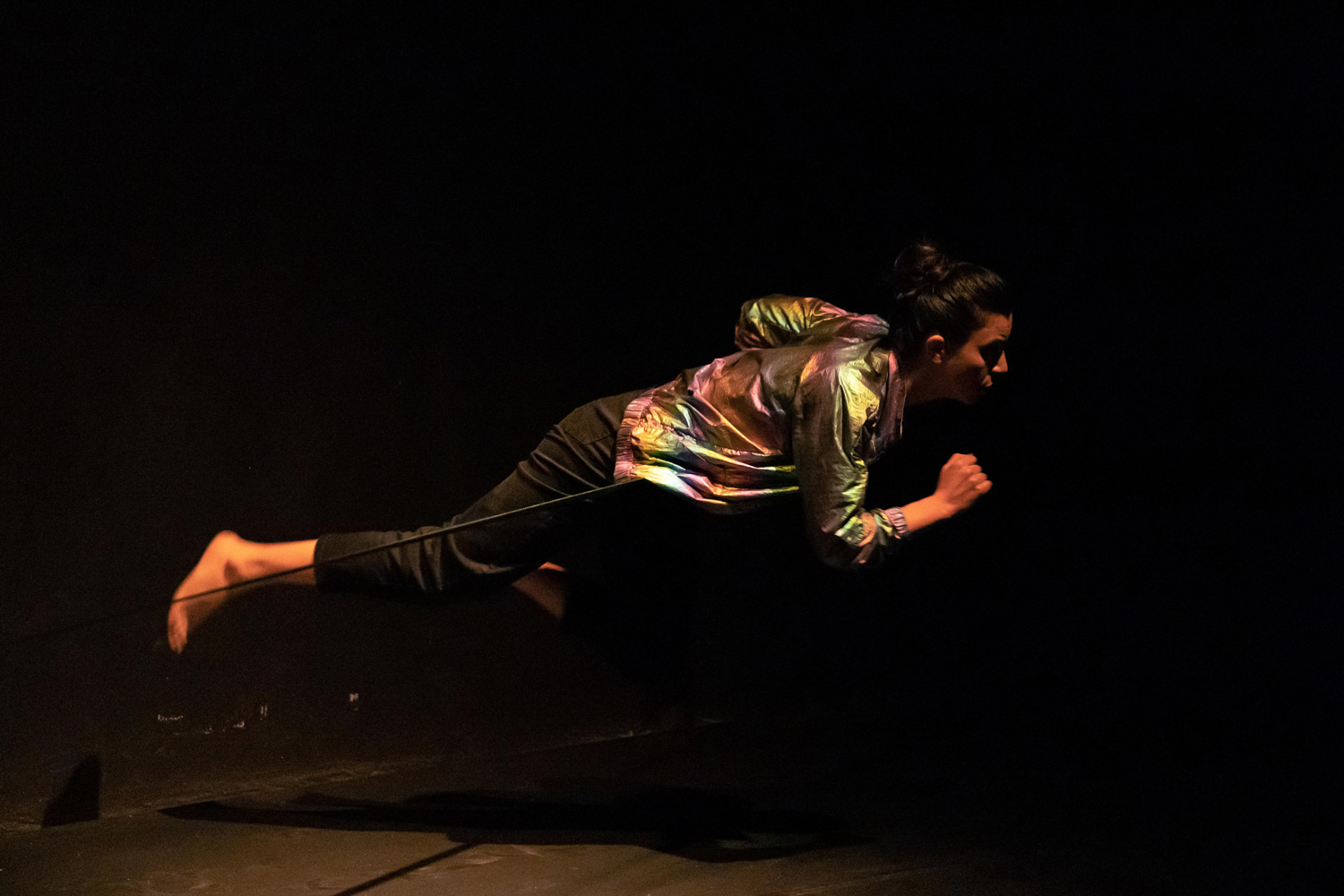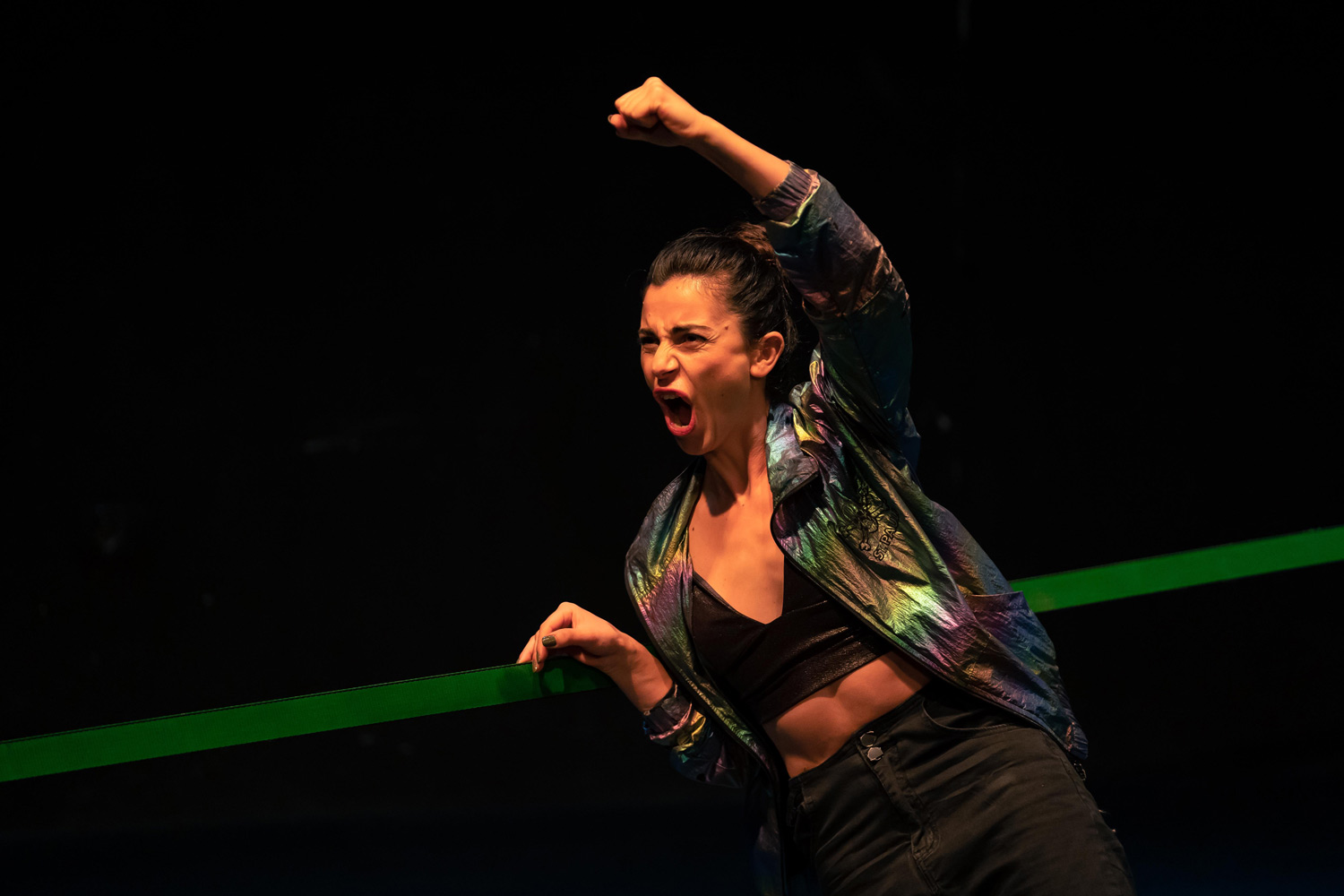LOSING IT
“She keeps falling but doesn’t give up… you could watch her for hours.” — Jörg Worat, Neue Presse
TEAM
Co-Created by: Samaa Wakim & Samar Haddad King
Choreography and performance by: Samaa Wakim
Music and performance by: Samar Haddad King
Lighting by: Cord Haldun
Technical Direction by: Moody Kablawi
ADDITIONAL CREDITS
Song by: Turathy (Album: Autostrad)
Prayer by: Mounira Wakim
TOURING INFORMATION
Cast: 2
Touring Company: 3-4
Duration of work: 40 minutes (no intermission)
Produced by: Yaa Samar! Dance Theatre, Khashabi Theatre, and Theaterformen Festival
Losing It was developed as part of the Goethe Institute project “Un|Controlled Gestures?” (2019-2020).
World Premiere: July 17, 2021 Ballhof Eins Theatre Festival Theaterformen (Hannover, Germany)
For more information click here.
Photos © Mohab Mohammed
Can you still hear the bombs? I can hear them.
Growing up in a war zone means living and breathing politics. The Palestinian choreographer and performer Samaa Wakim asks herself how these experiences impact her identity in a new solo performance – Losing It – which explores how the trauma of previous generations manifests in her own body through movement and sound.
In a journey towards the moment she began to fear for her freedom, the piece dives into her memories of growing up under occupation, exploring the various realities she lives in, and the fantasies she’s created out of fear and hope in order to survive. As fear overtakes her, her world begins to disintegrate: the floor becomes unstable, and the sounds begin to warp, creating a world where reality and fantasy blur.
Created in conversation with a live score by Samar Haddad King, the soundscape features field recordings taken throughout Palestine since 2010. Accompanied by Wakim’s vocals, the sounds of fear and safety come together to the point where past and present cloud the future.
“The performance is a string of states of tension. The soundscape, by Samar Haddad King makes a decisive contribution in the background and is correspondingly diverse.” — Jörg Worat, Neue Presse





